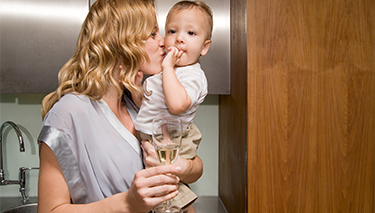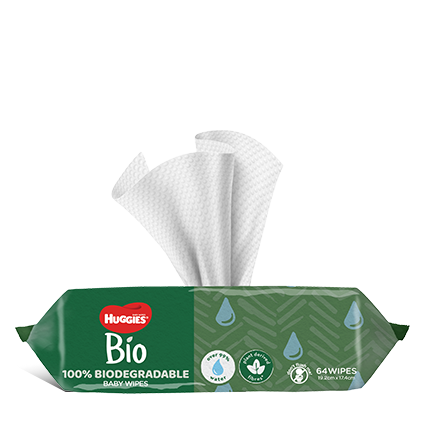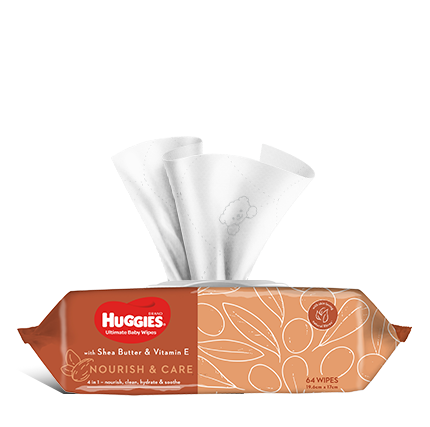There is an abundance of information on establishing breastfeeding, though not so much on how to stop. No matter how beneficial it is, there comes a time when breastfeeding comes to an end – for every mother and her baby. This may be after a few days or weeks of breastfeeding or a couple of years, when the child has become a toddler.
There are many reasons why babies wean off breastfeeding; some of these are determined by the baby, some by the mother and frequently, a combination of both. Whatever the catalyst, stopping breastfeeding can be a time of sadness. Breastfeeding does create a special bond and mothers understandably, can feel apprehensive that when it stops their relationship with their baby will change. This is rarely true.
Babies and their mothers are biologically designed to seek connection with each other and form strong emotional bonds.
No matter how your baby feeds, this closeness will still continue.
Common Reasons for Stopping Breastfeeding
- The baby weans themself. This can be demonstrated by a sudden refusal to feed at the breast or a more gradual disinterest in feeding. There is often no obvious reason for this.
- Low milk supply. Many women wean prematurely because they perceive their breastmilk supply to be insufficient for their baby’s needs. This is not always accurate.
- Mothers who don’t enjoy breastfeeding or find they simply don’t want to anymore. This can be based on very personal reasons.
- Recurrent mastitis, nipple thrush, mastalgia (breast pain).
- Mothers who experience ongoing physical pain during breastfeeds due to nipple trauma e.g. cracks and blisters, may choose to stop breastfeeding.
- A return to work where continuing to feed or express breastmilk is not a viable option. There is legislation which supports mothers to continue breastfeeding when they return to paid employment. Check with your Human Resource Management to enquire about your rights and their responsibilities.
- For mothers who need to commence taking medication which is incompatible or not recommended when breastfeeding.
- A mother’s diagnosis of breast cancer or other significant illness which is not compatible with breastfeeding.
- When a mother needs to be hospitalized and she and her baby cannot be accommodated together.
- When a baby is failing to thrive at the breast and not receiving sufficient amounts of milk. Brain growth is significant in the first 12 months of life and an adequate intake of milk is essential to fuel this.
- If a baby becomes very unwell and is no longer able to breastfeed or drink expressed milk from a bottle.
Common Emotions for Mothers who Stop Breastfeeding - Relief. Some mothers feel under pressure to breastfeed when they would prefer not to.
- Disappointment, sadness and grief. This is more common when a baby has needed to wean for reasons which are out of the mother’s control such as illness.
- Ambivalence. Some mothers don’t really mind either way and don’t find bottle feeding a chore. Weaning can be viewed as a solution to a problem, rather than a problem in itself.
- Anger and/or resentment, particularly when a mother feels that this was a choice she had little control over.
Alternatives to Breastfeeding
If your baby is under 12 months of age and no longer breastfeeding, they will need to drink infant formula. See our article on choosing the best baby formula for your baby. Most consist of dried cow’s milk which has been modified to suit infant digestion. They also contain various combinations of vitamins, minerals and oils. Follow on formulas are generally recommended for babies older than 6 months. The primary difference between newborn and follow on formulas is the iron content which needs to be higher for babies in the second half of their first year.
Check the tin of formula for the amount and frequency of feeds your baby needs to have. Alternately, you could check with your child health nurse who will weigh your baby and estimate how much formula is needed to meet your baby’s growth requirements. Remember that every baby is an individual and will have their own, unique individual needs. The following is intended as a guide only:
Average Formula Requirements for a Baby’s Age
- On Day 1 30ml per kilogram of body weight per day
- On Day 2 60ml per kilogram per day
- On Day 3 90ml per kilogram per day
- On Day 4 120 ml per kilogram per day
- On Day 5 – 3 months 150 ml per kilogram per day
- From 3-6 months 120m ml per kilogram per day
- From 6-12 months 100 ml per kilogram per day
For babies who have problems digesting standard formula, specialty formulas are available. These can be based on soy products, be lactose free or contain cow’s milk protein which has already been broken down, allowing for better gut tolerance.
What to do if your Baby Won’t Accept a Bottle
Babies can go through a transition phase as they adjust from one form of feeding to another. Formula and breast milk taste different and babies, whose taste buds are highly sensitive, can initially refuse to drink formula. Time, practice and hunger usually combine to persuade babies to accept a bottle.
You may find your baby is more willing to drink for someone else, other than yourself. Babies can associate their mothers so strongly with breastfeeding that to be presented with an alternative to the breast may be very foreign to them.
Many parents try various types of formula, teats and bottles in the belief that there will be one which makes a difference. Usually it is the baby’s hunger, combined with parents persevering and remaining calm which leads to the baby sucking.
When to Worry
- If your baby is refusing to feed they will need to be reviewed by a doctor.
- Your baby needs to have 6 or more wet nappies each day. This will give an indication of their hydration. Moist eyes, a moist mouth and being alert and responsive are also signs of good hydration.
- If your baby is sleepy, difficult to rouse and appears unwell, they need to be reviewed by a doctor.
- If your baby is vomiting or does not seem to be tolerating the formula, a medical review is necessary.
The best way to wean a baby off breast feeds is to progress slowly. Replacing a breastfeed with a bottle feed every few days is generally a more comfortable option than suddenly stopping. But if you find your baby will not accept the bottle, then stopping all breastfeeds many be your only alternative. Focusing on offering bottles every 3-4 hours and when your baby appears hungry will help them to learn their new way of feeding.
If you Choose to Offer Expressed Breast Milk
- This can be stored in the refrigerator for 3-5 days in a sterilised and closed container.
- Store expressed breast milk (EBM) (and formula) in the body of the refrigerator, not the door.
- EBM can be stored in the freezer section of a domestic refrigerator for 3 months.
- EBM can be stored in a deep freeze for 6-12 months.
- Don’t expect your breast milk to look the same as formula or cow’s milk. EBM can be watery and have a blue/pale green colour. The fat settles to the top so it will need shaking before offering it to your baby.
- Warm EBM the same way as you do formula. It can take less time to warm through than formula. Avoid heating it in a microwave; instead place the feeding bottle in a jug of hot water and check the temperature carefully before offering it to your baby.
- EBM and formula can be mixed together in the same bottle. However, because EBM is nutritionally superior to formula, it may be a good idea to offer your baby the EBM first, and then if they are still hungry, give them the formula.
Signs of Mastitis
- Redness, swelling and pain in the breast.
- Flu like symptoms such as aching bones and joints, an elevated temperature and just feeling unwell.
- Red streaking in the breast, with a feeling of tenseness and pain.
If you feel any of these symptoms or are concerned, a review with your GP is essential. Antibiotics are commonly prescribed, but in order to stop the bacteria which cause the infection from multiplying, these need to be started as soon as possible.
It is important to remember that weaning a baby off breastfeeds during an episode of mastitis is not recommended. Keeping the breasts from becoming engorged with milk will help with overall recovery and clearing the breast infection.
Last Published* May, 2024
*Please note that the published date may not be the same as the date that the content was created and that information above may have changed since.




















